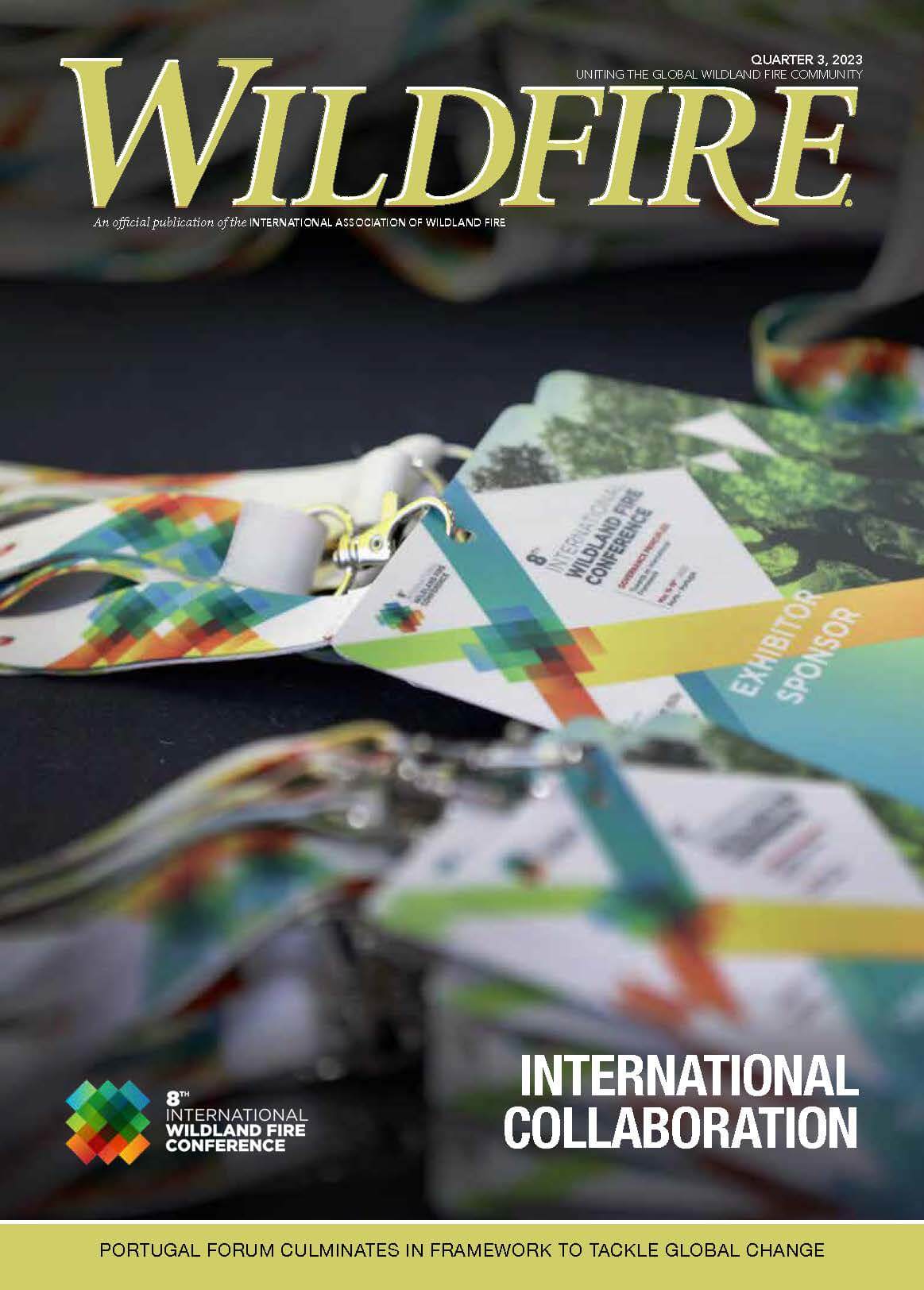Dr. Cathelijne Stoof
Early Career in Fire Science AwardThe International Association of Wildland Fire (IAWF) Early Career Award in Fire Science is given to recognize a promising early-career professional who has demonstrated outstanding ability in any field of wildland fire science. Since its initiation in 2016, the award has been bestowed on five individuals.
Selection of this award was based on open nominations. This year, a sub-committee comprising of seven fire scientists and managers from around the world with a wide variety of expertise and backgrounds evaluated each nominee in the areas of ability and impact, as well as their contribution to the diversity and inclusivity of the wildland fire science field. This year in particular, this award sub-committee faced a very challenging task as the nominees were all strong candidates. Two nominees, however, stood out in this highly competitive field. Unable to choose one over the other, the committee concluded that they were both incredibly deserving of this award, so this year, IAWF is awarding two Early Career Awards in Fire Science.
This year’s recipient of the IAWF Early Career Award in Fire Science is a highly versatile interdisciplinary researcher, already a leader in wildland fire science, and a role model for scientific communications and women in science.
Her research ranges from the pore scale to the catchment scale, and spans the range from human impacts to rigorous study of underlying physical processes. Initially well known for her outstanding PhD work on fire impact on soils, her research has now extended to environmental impacts, including greenhouse gas emissions, bioenergy, soil-water-plant ecology, and agronomy interactions. Based on her wide-ranging accomplishments, she received a prestigious Marie Curie Fellowship for her research and was shortlisted as one of 22 inspiring women at Wageningen University. She is well regarded and highly cited by the scientific community. Her publication record includes 117 journal and conference papers that, according to Google Scholar, have attracted already more than 1400 citations (at a current rate of 320 citations per year).
The awardee’s expertise in fire science is already in high demand. She has been instrumental in leading the scientific community, policy, and practitioners to recognize that climate change is impacting the fire regimes of countries that were previously considered ‘safe’ from wildfires. As part of this work she founded and leads the Wageningen Fire Centre to bring together researchers and stakeholders from various disciplines to tackle the diverse issues of fire within non-traditional fire prone countries. Most recently, she bought together and led a diverse group of academics and practitioners from across Europe to create a research proposal about her vision for living with fire. The project, called PyroLife, wants to tackle the increasing challenges of wildfire in Temperate and Mediterranean regions by bringing together a diverse set of disciplines (from engineers to ecologists to social scientists), all engaged in risk quantification, governance and risk communications, and the many disciplines in-between. As a result of this exceptional leadership and vision, her consortium PyroLife was awarded a €4 million grant in 2019 to train 15 PhD students from the Marie Curie International Training Network. In this way, her leadership will continue to guide and support the next generation of interdisciplinary fire scientists and their impact for decades to come.
Just as importantly, this year’s recipient has been a pioneer in fire science communications. She has excelled in creating public awareness for the soil and fire sciences by making a determined effort to engage the public in her research. She participates widely in TV programs (5), radio shows (10), and articles in popular scientific magazines, newspapers and on the web (>150) where she has worked on 3 continents.
In addition to her day job, the awardee is heavily involved in supporting various international peer groups and learned societies, such as the soil science community of EGU where she has convened multiple session, or her involvement in IAWF as the Dutch member of EU Expert Group of Forest Fires. But of particular importance, she has been a strong advocate for equality and equity for underrepresented groups in fire science. She has been invited to give talks on the subject of diversity at several venues. She has also led this through more formal channels such as the 2019 letter in Nature entitled “Diversity helps to manage wildfires.” These are all laudable endeavors where she puts her mind and heart and highlight the breadth of her skills and aims, and demonstrates her important role as an academic and young leader within the scientific community.
For an early career scientist, her interdisciplinary approach, scientific accomplishments, social relevance and outreach activities in fire sciences are unparalleled in breadth and depth. She is a knowledgeable scientist who is always willing to share her insights with colleagues and who cheers on early career scientists to become confident and ambitious researchers themselves.
It is with great pleasure that we announce that the 2021 IAWF Early Career Award in Fire Science goes to Dr. Cathelijne Stoof of the University of Wageningen.
Congratulations Cathelijne!
